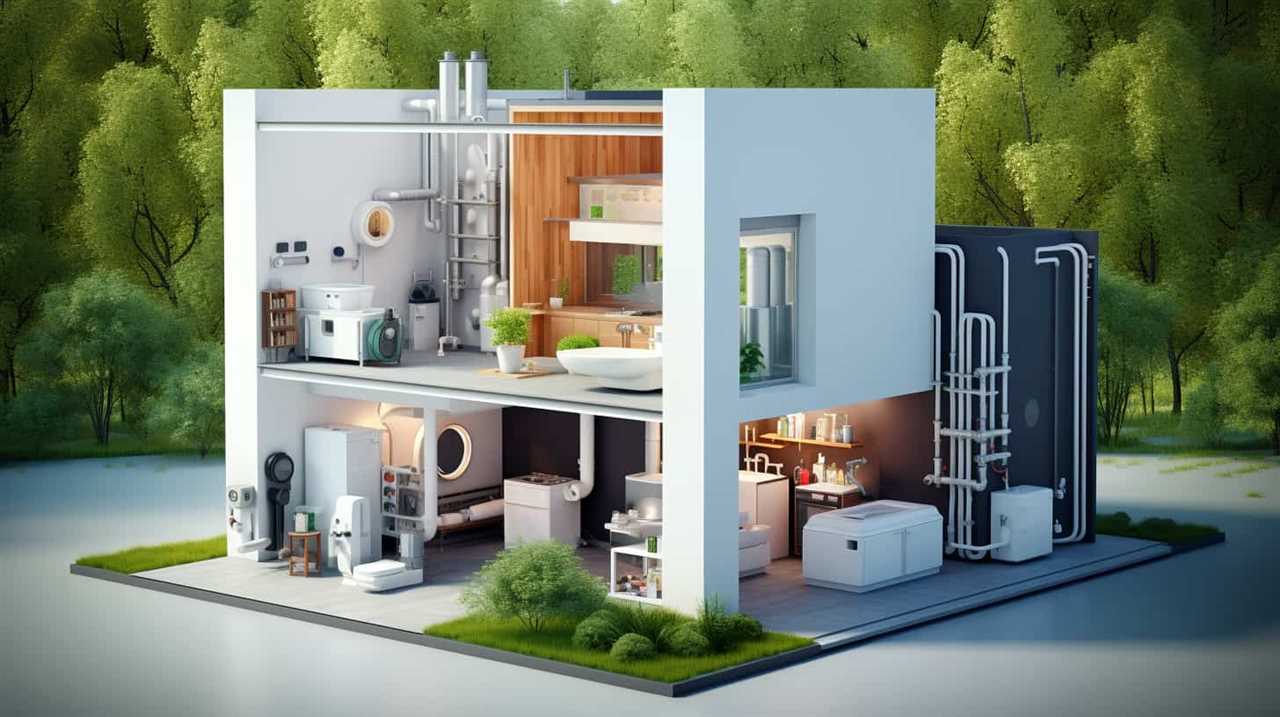Welcome to our comprehensive guide on high-quality heat pump air systems. If you are in search of dependable and effective cooling and heating solutions, you have landed in the right spot.
In this article, we’ll provide you with all the necessary information to make an informed decision when choosing a heat pump air system. From understanding energy efficiency ratings to maximizing performance, we’ve got you covered.
Let’s dive in and explore the world of heat pump air conditioning together.
Key Takeaways
- There are three main types of heat pump air conditioning systems: air source, ground source, and water source. Consider efficiency, cost, and installation requirements when choosing a system.
- When choosing a heat pump air system, factors to consider include conducting an energy efficiency analysis, proper sizing, installation requirements, evaluating maintenance needs and service provider availability, and choosing a system supported by a reliable service network.
- Energy efficiency ratings, such as SEER and HSPF, are important in determining overall performance and cost-effectiveness. Higher efficiency ratings result in lower energy consumption and cost savings.
- Using a heat pump for air conditioning provides a comfortable and energy-efficient environment, allows for effective cooling and heating, discreet installation on walls, and the ability for sunlight to filter through windows while the heat pump operates.
Types of Heat Pump Air Conditioning Systems
Let’s explore the different types of heat pump air conditioning systems available in the market. When it comes to heat pump air systems, there are three main types: air source, ground source, and water source. Each type has its own advantages and it’s important to understand the comparison between them.

Air source heat pump systems are the most common and cost-effective option. They extract heat from the outside air and transfer it indoors.
Ground source heat pump systems, also known as geothermal systems, use the stable temperature of the ground to provide heating and cooling.
Lastly, water source heat pump systems utilize a nearby water source such as a lake or pond to extract or dissipate heat.
When choosing a heat pump air system, it’s crucial to consider factors such as efficiency, cost, and installation requirements.

Factors to Consider When Choosing a Heat Pump Air System
When selecting a heat pump air system, we need to take into account various factors such as energy efficiency, size, and installation requirements. Considering these factors will help ensure that you choose the right system for your needs and maximize its performance.
Here are some important factors to consider:
-
Energy efficiency: Conduct an energy efficiency analysis to determine the system’s heating and cooling capacities, as well as its energy consumption. Look for systems with high SEER (Seasonal Energy Efficiency Ratio) and HSPF (Heating Seasonal Performance Factor) ratings to ensure optimal efficiency.
-
Size: Proper sizing is crucial to the system’s performance. Oversized systems can lead to short cycling and increased energy consumption, while undersized systems may struggle to meet your heating and cooling needs. Consult with a professional to determine the appropriate size for your space.

-
Installation requirements: Consider the installation requirements of the system, such as ductwork modifications and electrical connections. Ensure that your space can accommodate these requirements without significant modifications or additional costs.
-
Maintenance and service: Evaluate the system’s maintenance needs and availability of service providers. Regular maintenance is essential to ensure the system operates efficiently and to prevent breakdowns. Choose a system that’s supported by a reliable service network.
Energy Efficiency Ratings and Their Importance
As we consider the energy efficiency ratings of heat pump air systems, it becomes clear that they play a crucial role in determining the system’s overall performance and cost-effectiveness.
Energy efficiency ratings provide an indication of how effectively a heat pump can convert electrical energy into heating or cooling output. The most commonly used rating for heat pump air systems is the Seasonal Energy Efficiency Ratio (SEER). SEER ratings measure the cooling efficiency of the system, while Heating Seasonal Performance Factor (HSPF) ratings measure the heating efficiency.

These ratings are important for several reasons. Firstly, they help consumers make informed decisions about which system to purchase, considering both energy savings and environmental impact. Secondly, higher efficiency ratings typically result in lower energy consumption, which can lead to significant cost savings over time.
Understanding SEER and HSPF ratings is essential for selecting an energy-efficient heat pump air system. Now, let’s delve deeper into these ratings and their significance in the next section.
Understanding SEER and HSPF Ratings
To fully comprehend the efficiency of heat pump air systems, we must understand the SEER and HSPF ratings. These ratings are crucial in determining the energy savings and efficiency comparison of different systems. Here’s what you need to know:
-
SEER (Seasonal Energy Efficiency Ratio) is a measure of how efficiently a heat pump air system cools your home during the cooling season. Higher SEER ratings indicate greater energy efficiency and potential for energy savings.
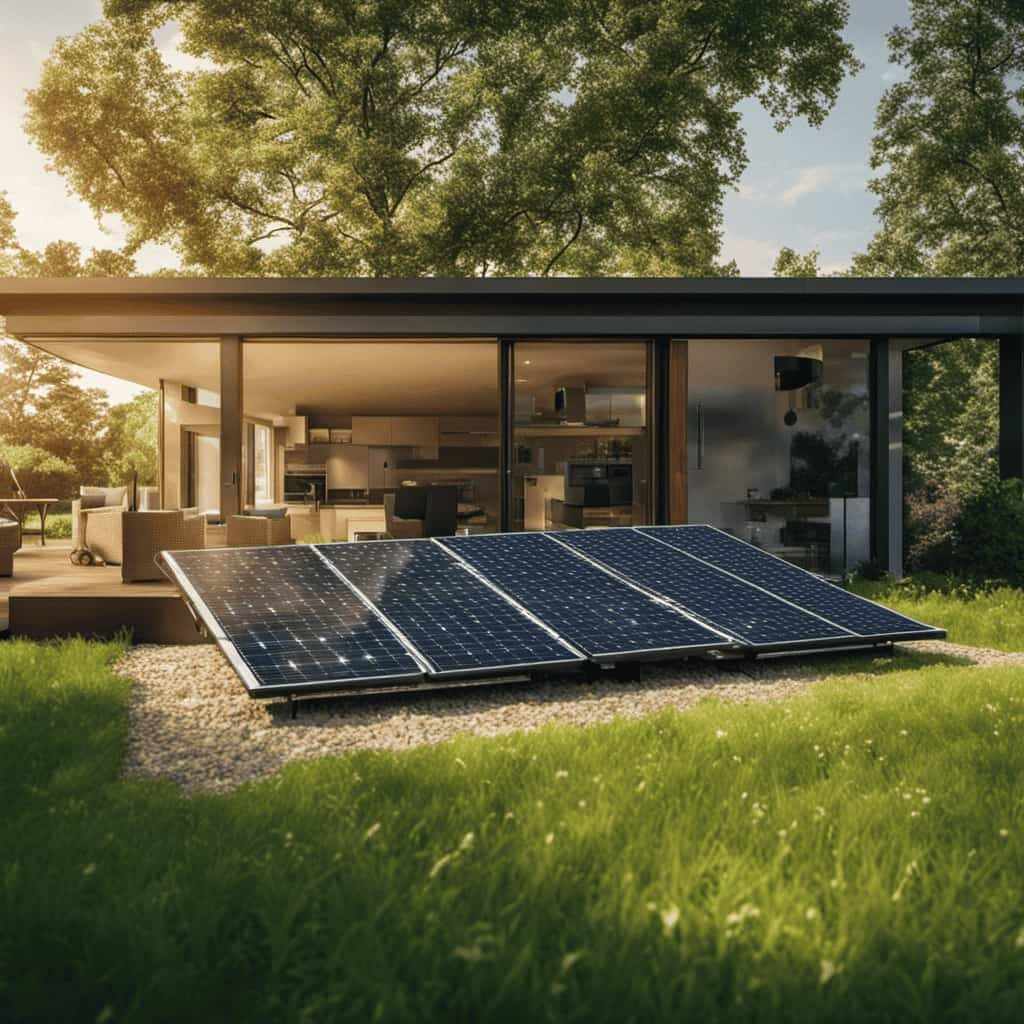
-
HSPF (Heating Seasonal Performance Factor) measures the efficiency of a heat pump air system in heating mode. Similar to SEER, higher HSPF ratings indicate better energy efficiency and potential for energy savings.
-
Both SEER and HSPF ratings are determined by laboratory testing and provide a standardized way to compare the efficiency of different heat pump air systems.
-
When comparing systems, it’s important to consider both SEER and HSPF ratings to ensure optimal energy savings and efficiency.
Understanding these ratings will help you make informed decisions when choosing a heat pump air system, ensuring maximum energy savings and efficiency.

Benefits of Using a Heat Pump for Air Conditioning
When it comes to air conditioning, using a heat pump offers several benefits.
First and foremost, heat pumps are known for their energy efficiency advantages.
They can provide both heating and cooling, making them a year-round comfort solution.
Additionally, heat pumps have lower operating costs compared to traditional air conditioning systems.

Energy Efficiency Advantages
We have found that using a heat pump for air conditioning can significantly reduce energy consumption and save homeowners up to 50% on their utility bills. This energy savings isn’t only beneficial for homeowners’ wallets but also has a positive environmental impact.
Here are some key advantages of using a heat pump for air conditioning:
-
Increased energy efficiency: Heat pumps are designed to transfer heat rather than generate it, making them more efficient than traditional heating and cooling systems.
-
Reduced carbon footprint: Heat pumps produce fewer greenhouse gas emissions compared to other heating and cooling methods, helping to mitigate climate change.

-
Versatility: Heat pumps can be used for both heating and cooling, providing year-round comfort and eliminating the need for separate systems.
-
Long-term cost savings: While heat pumps may have a higher upfront cost, the energy savings over time can offset this initial investment.
Year-Round Comfort Solution
Our heat pump provides a year-round comfort solution and offers numerous benefits for air conditioning. Not only does it keep your home cool during hot summer months, but it also provides warmth during the colder seasons. One of the key advantages of using a heat pump for air conditioning is the year-round energy savings it offers. By efficiently transferring heat from the outside air to the inside of your home, a heat pump can significantly reduce your energy consumption and lower your utility bills. Additionally, our heat pump system is equipped with zone control capabilities, allowing you to customize the temperature in different areas of your home. This means you can save even more energy by only cooling or heating the rooms that are currently being used. Take a look at the table below to see the benefits of zone control in more detail:
| Benefits of Zone Control |
|---|
| Energy savings |
| Customizable comfort |
| Reduced wear and tear |
| Enhanced indoor air quality |
Lower Operating Costs
Using a heat pump for air conditioning can result in lower operating costs and increased energy efficiency. Here are some energy saving strategies and long term savings associated with using heat pumps:
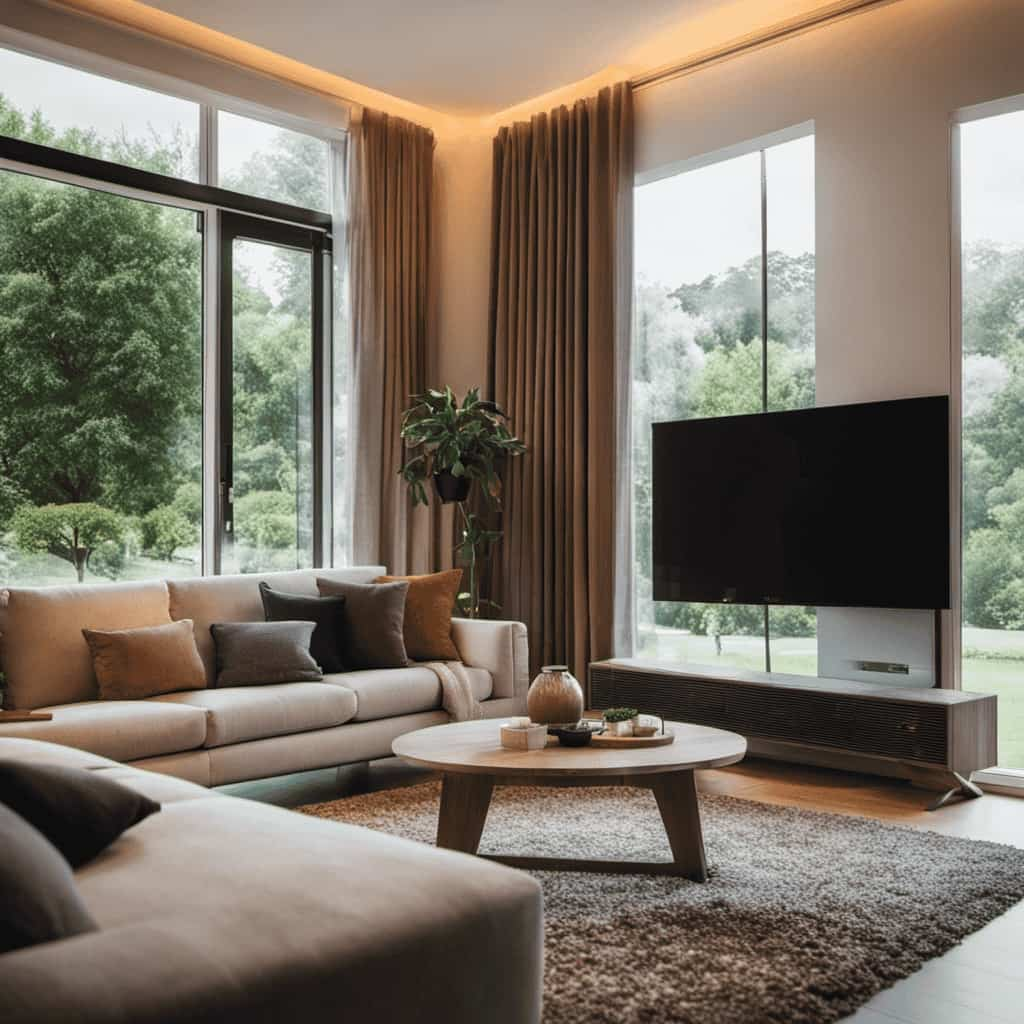
-
Reduced electricity consumption: Heat pumps are more efficient than traditional air conditioning systems, consuming less electricity to cool your space.
-
Dual functionality: Heat pumps can provide both heating and cooling, eliminating the need for separate systems and reducing overall energy consumption.
-
Lower maintenance costs: Heat pumps require less maintenance compared to other air conditioning systems, resulting in long term savings on repair and servicing expenses.
-
Incentives and rebates: Many utility companies and government agencies offer incentives and rebates for installing energy-efficient heat pump systems, further reducing upfront costs and increasing long term savings.

Common Maintenance Tasks for Heat Pump Air Systems
Regular maintenance tasks are necessary to ensure the optimal performance and longevity of heat pump air systems. By performing these common maintenance tasks, you can prevent potential issues and keep your system running smoothly. Here are some troubleshooting issues you may encounter and the corresponding maintenance tasks to resolve them:
| Issue | Maintenance Task |
|---|---|
| Insufficient cooling/heating | Clean or replace air filters regularly |
| Frequent on/off cycling | Check and clean the outdoor unit coil |
| Noisy operation | Lubricate fan motors and tighten loose components |
Remember to schedule regular professional inspections to ensure your heat pump air system is functioning at its best. By implementing these maintenance tasks, you can enjoy a comfortable environment while maximizing the efficiency of your heat pump air system.
Troubleshooting Common Issues With Heat Pump Air Conditioning
Let’s address some common issues that may arise when troubleshooting heat pump air conditioning systems. Here are some troubleshooting techniques to help you solve these common problems:
-
Poor Cooling or Heating Performance:
Check the air filters for dirt and clean or replace them if necessary.
Ensure that the thermostat is set correctly and that the heat pump isn’t obstructed by any furniture or curtains.
-
Strange Noises:
Inspect the outdoor unit for loose or damaged parts.
Tighten any loose screws and bolts.
If the noise persists, it may indicate a faulty fan motor or compressor, which requires professional assistance. -
Frozen Coil:
Check the air filters for dirt and clean or replace them.
Ensure that the refrigerant levels are adequate.
If the issue persists, it may be due to a malfunctioning defrost control board or sensor, which should be inspected by a technician. -
Short Cycling:
Verify that the thermostat is functioning correctly and set to the appropriate temperature.
Check for any obstructions in the air vents or return grilles.
If the problem continues, it may be a sign of a faulty thermostat or compressor, requiring professional attention.
Remember to follow these troubleshooting techniques to resolve common issues with your heat pump air conditioning system effectively.

Proper Installation and Sizing of Heat Pump Air Systems
For optimal performance and efficiency, we must ensure that heat pump air systems are properly installed and accurately sized. Following heat pump installation guidelines is crucial to avoid potential issues and maximize the system’s potential.
First, the location for the heat pump unit should be chosen carefully, considering factors such as adequate airflow, accessibility for maintenance, and noise reduction.
Additionally, proper sizing of the heat pump is essential to ensure it can effectively heat or cool the space without overworking the system. Sizing calculations should take into account factors such as the square footage of the space, insulation levels, and climate conditions. Oversized or undersized units can result in reduced efficiency, increased energy consumption, and shortened lifespan.
Tips for Maximizing the Performance of Your Heat Pump Air System
To maximize the performance of our heat pump air system, we must implement these key tips:

-
Regular Maintenance: Schedule annual maintenance to ensure optimal functionality and efficiency of your heat pump air system. This includes cleaning filters, inspecting coils, and checking refrigerant levels.
-
Proper Insulation: Insulate your home effectively to prevent heat loss or gain, allowing your heat pump air system to operate at its peak performance.
-
Smart Thermostat: Install a programmable or smart thermostat to control and regulate the temperature in your home, maximizing efficiency and minimizing energy waste.
-
Airflow Optimization: Ensure proper airflow by keeping air vents unblocked and clean. Additionally, consider using ceiling fans to circulate air, allowing your heat pump air system to distribute conditioned air more efficiently.

Comparison of Ducted and Ductless Heat Pump Air Systems
When comparing ducted and ductless heat pump air systems, there are three key points to consider:
Efficiency and cost: This factor is important as it determines the energy consumption and operating expenses of the system.
Installation and maintenance: Ducted and ductless systems differ in terms of installation and maintenance requirements. Ducted systems often require more extensive installation and regular duct cleaning, while ductless systems are generally easier to install and maintain.
Flexibility and space: This refers to the ability to customize the system’s configuration and the space requirements for installation.

It is important to evaluate these factors when deciding between a ducted or ductless heat pump air system.
Efficiency and Cost
We will compare the efficiency and cost of ducted and ductless heat pump air systems. When considering the cost effectiveness of these systems, it’s important to take into account the initial installation cost as well as the long-term operational costs. Here are some key points to consider:
-
Ducted systems generally have a higher upfront cost due to the installation of ductwork throughout the building.
-
Ductless systems, on the other hand, require minimal installation and can be more cost effective for smaller spaces.

-
In terms of energy efficiency, both systems can provide substantial savings compared to traditional heating and cooling methods.
-
Ductless systems have the advantage of eliminating energy losses associated with ductwork, resulting in higher efficiency ratings.
Considering the environmental impact, both ducted and ductless systems have the potential to reduce greenhouse gas emissions and energy consumption. However, ductless systems, with their higher efficiency and ability to provide zoned heating and cooling, can further minimize energy waste, making them a more environmentally friendly choice.
Installation and Maintenance
Our team will now compare the installation and maintenance of ducted and ductless heat pump air systems.
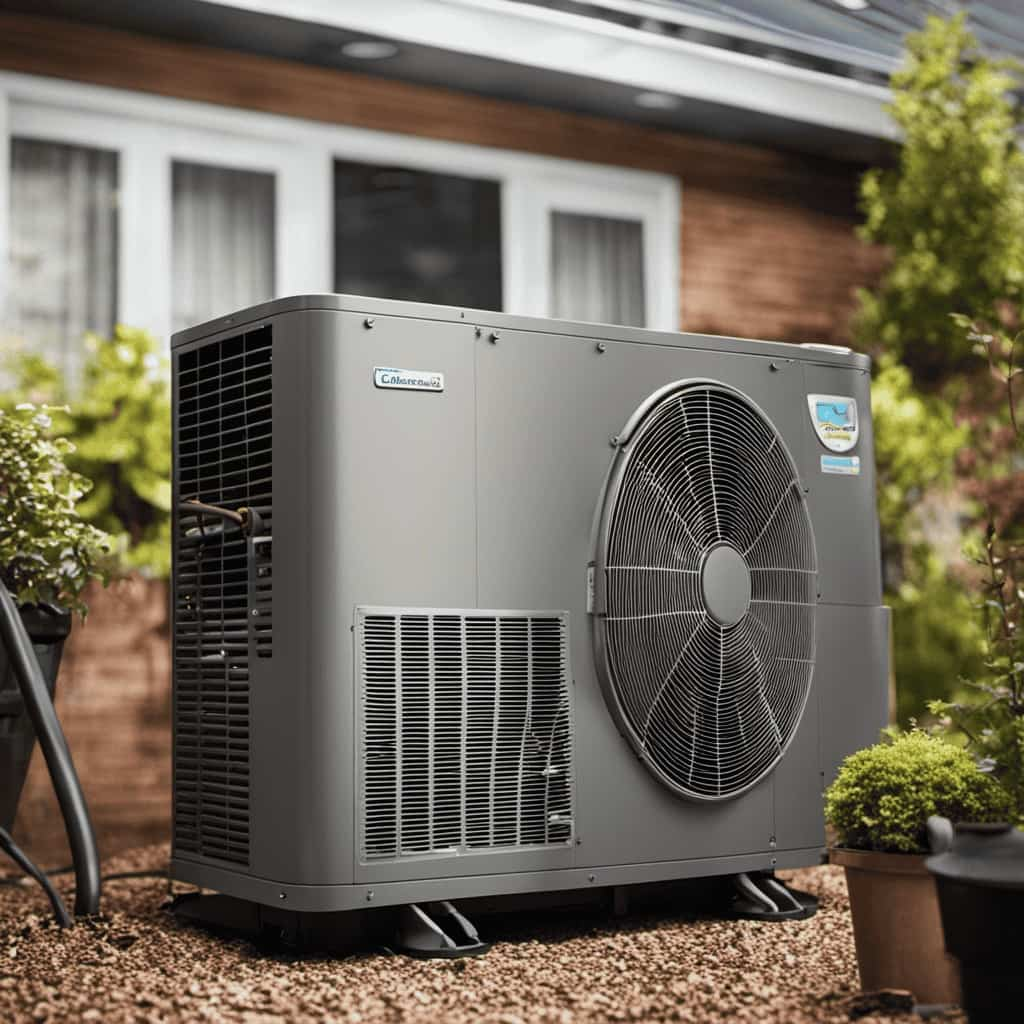
When it comes to installation, ducted heat pump systems require the installation of ductwork throughout the home, which can be time-consuming and costly. On the other hand, ductless heat pump systems are easier to install as they only require a small hole in the wall for the refrigerant lines and electrical wiring.
For maintenance, both types of heat pump systems require regular upkeep to ensure optimal performance. Here are some heat pump installation tips: ensure proper sizing, choose the right location, and follow manufacturer’s instructions.
As for the heat pump maintenance checklist, it includes cleaning or replacing air filters, cleaning outdoor units, checking refrigerant levels, inspecting electrical connections, and scheduling professional maintenance annually.
Regular maintenance is essential to prolong the lifespan of the heat pump and maintain its efficiency.

Flexibility and Space
Both ducted and ductless heat pump air systems offer different levels of flexibility and space to accommodate various home layouts and preferences. Here are some key points to consider when comparing the flexibility options and space-saving designs of these systems:
-
Ducted heat pump air systems: These systems use a network of ducts to distribute air throughout the home. They offer the advantage of centralized control and can be concealed within walls or ceilings, saving valuable space. However, the installation of ductwork can be complex and may require modifications to the home’s structure.
-
Ductless heat pump air systems: These systems consist of individual indoor units that are mounted on walls or ceilings. They offer the flexibility of zone control, allowing different temperatures in different areas of the home. Ductless systems are ideal for homes without existing ductwork and can be installed with minimal disruption.
-
Space-saving designs: Ductless systems are compact and require no ductwork, making them a great option for homes with limited space. They can be installed in small rooms, apartments, or even in areas where ducted systems aren’t feasible.

-
Flexibility options: Ductless systems offer the flexibility of individual temperature control in each room or zone, allowing personalized comfort for different occupants. They can also be easily added or expanded to accommodate home renovations or additions.
Consider these factors when deciding between ducted and ductless heat pump air systems to ensure the best fit for your home’s needs.
Additional Features and Options for Heat Pump Air Conditioning Systems
There are several additional features and options available for heat pump air conditioning systems.
These options include advanced technology that enhances the performance and efficiency of the system.
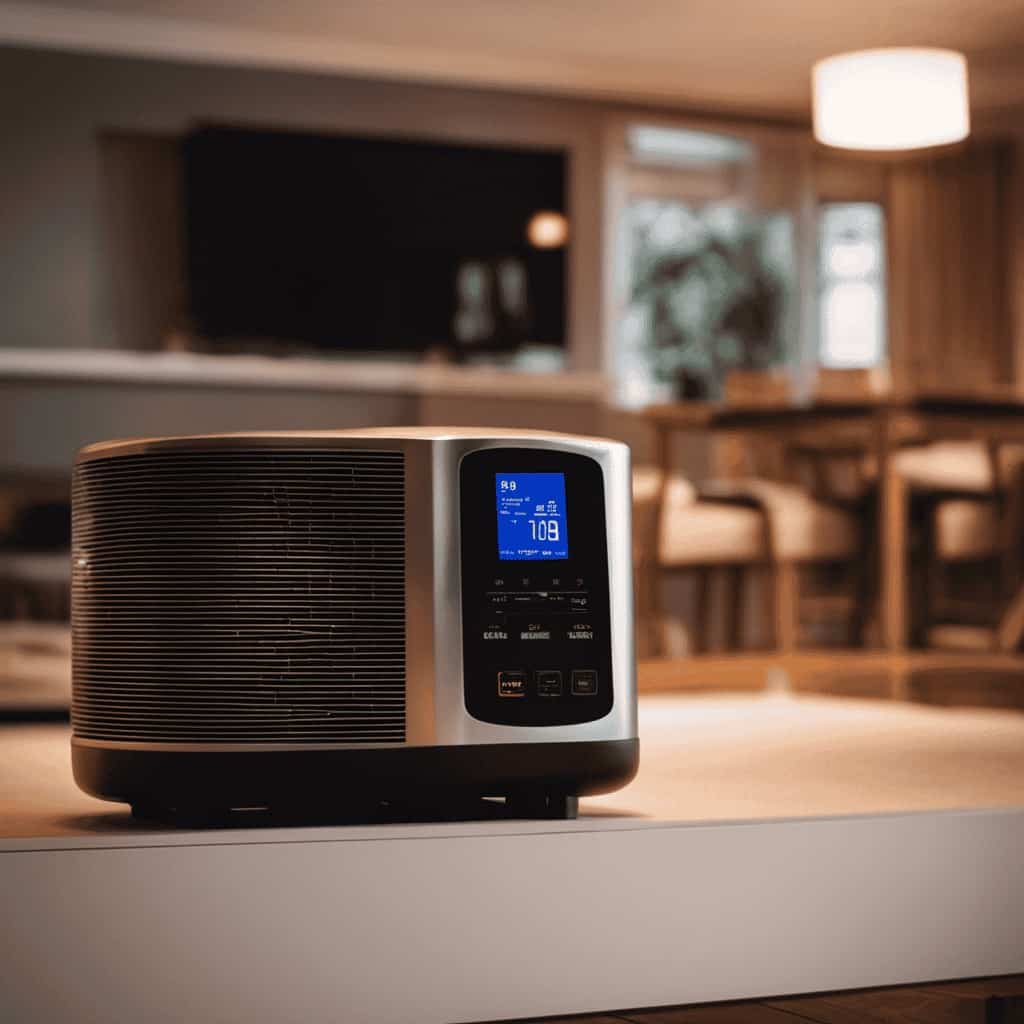
One such feature is the variable-speed compressor, which allows the heat pump to adjust its speed based on the heating or cooling needs of the space. This not only improves comfort but also reduces energy consumption.
Another additional feature is the smart thermostat, which allows for easy programming and control of the system through a smartphone or other smart devices. This feature enables users to set personalized schedules and monitor energy usage, leading to further energy savings.
Finally, some heat pump systems offer the option of integrating with a home automation system, providing seamless control and coordination with other smart devices in the home.
These additional features and options enhance the overall performance and convenience of heat pump air conditioning systems.

Frequently Asked Questions
Can a Heat Pump Air System Be Used for Both Heating and Cooling?
Yes, a heat pump air system can be used for both heating and cooling. It offers efficient temperature control and provides benefits such as energy savings and improved indoor air quality.
Are Heat Pump Air Systems Suitable for All Types of Homes?
Heat pump air systems are suitable for all types of homes. They can be installed in small spaces and provide numerous benefits to older homes. They efficiently heat and cool, making them a versatile option.
How Often Should a Heat Pump Air System Be Serviced?
We recommend servicing your heat pump air system annually to ensure optimal energy efficiency and performance. Regular maintenance checklists should include cleaning filters, inspecting coils, and checking refrigerant levels.
Can a Heat Pump Air System Work in Extreme Weather Conditions?
Yes, a heat pump air system can work in extreme weather conditions. However, it’s important to note that heat pump performance and energy efficiency may be affected. Regular maintenance is crucial to ensure optimal functioning.

Are There Any Government Incentives or Rebates Available for Installing a Heat Pump Air System?
Yes, there are government incentives and energy rebates available for installing a heat pump air system. These incentives and rebates can help offset the cost and encourage the use of energy-efficient heating and cooling systems.
Conclusion
In conclusion, choosing a quality heat pump air conditioning system is essential for efficient cooling and energy savings. By considering factors such as energy efficiency ratings and proper installation, you can maximize the performance of your system.
Despite initial concerns about the upfront cost, investing in a heat pump offers numerous benefits such as year-round comfort and lower utility bills.
So, why not make the switch to a heat pump air system and enjoy the comfort and savings it brings?





